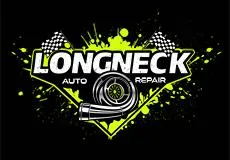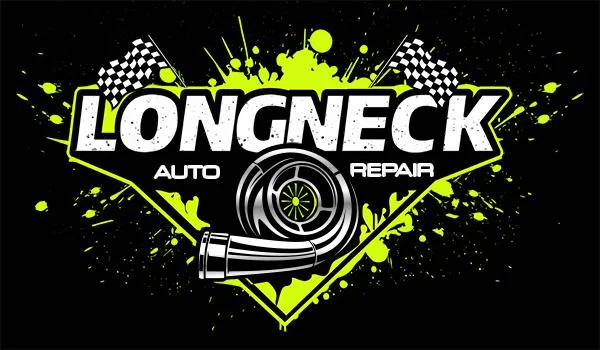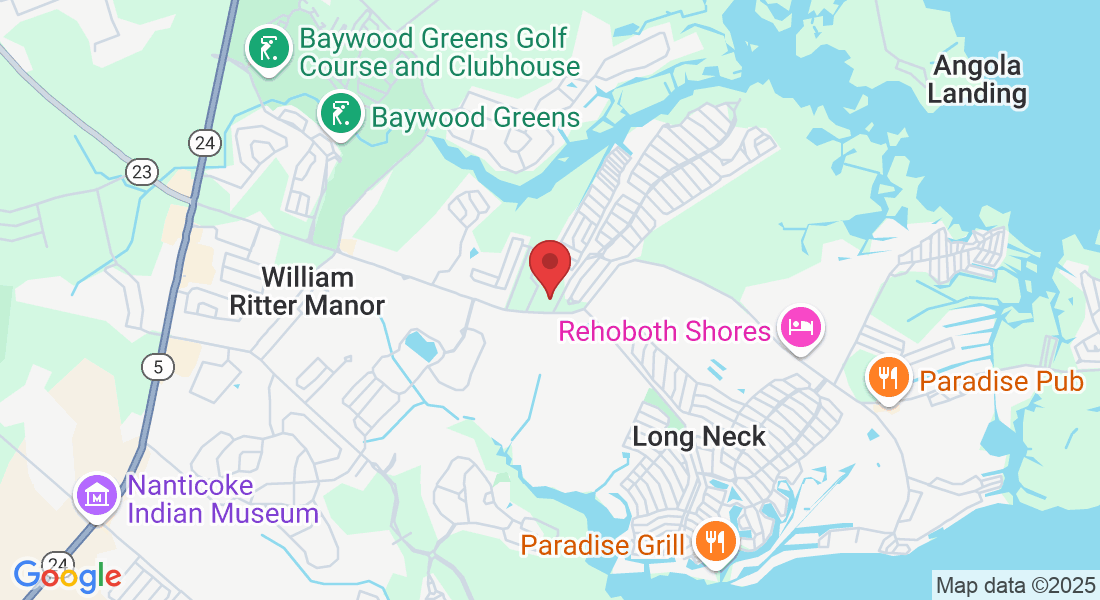Welcome To MILLSBORO'S BEST AUTO REPAIR Co.
BRAKE REPAIR SERVICES

Our Brake Service Packages start at $425 and may include:
1. Brake Inspection
Visual and mechanical inspection of:
Brake pads/shoes
Rotors/drums
Calipers
Brake lines and hoses
Brake fluid level and condition
Check for unusual noises, vibrations, or pulling
2. Brake Pad Replacement
Remove and replace worn brake pads
Inspect and lubricate caliper hardware
Resurface or replace rotors if needed
Test braking performance
3. Brake Rotor (or Drum) Replacement
Replacing rotors or drums if they’re:
Too thin (below manufacturer specs)
Cracked, warped, or excessively worn
4. Brake Caliper Service
Inspect and replace sticking or leaking calipers
Clean and lubricate slide pins
Caliper rebuild (less common, typically on high-performance or specialty vehicles)
5. Brake Fluid Flush
Remove old brake fluid
Replace with fresh DOT-specified brake fluid
Bleed the system to remove air bubbles
Recommended every 2–3 years or per manufacturer
6. Brake Line Repair or Replacement
Inspect for leaks, corrosion, or damage
Replace metal or rubber brake lines as needed
Ensure proper sealing and pressure
7. Anti-Lock Braking System (ABS) Service
Diagnose and repair ABS warning lights
Check ABS sensors, modules, and wiring
Reset ABS codes
8. Emergency Brake / Parking Brake Service
Adjust cable tension
Inspect components (levers, cables, shoes)
Replace worn parts
Repair electric parking brake systems (on newer vehicles)
8. Emergency Brake / Parking Brake Service
Adjust cable tension
Inspect components (levers, cables, shoes)
Replace worn parts
Repair electric parking brake systems (on newer vehicles)
Add-on Services (Can Be Bundled with Brake Jobs)
Tire rotation (to promote even wear)
Wheel alignment check (after brake or suspension work)
Suspension check (for related noises or uneven wear)
$425+
Brake Pad Replacement
Frequency: Every 30,000 to 70,000 miles (depending on driving style and conditions)
Why It Matters: Worn pads reduce your ability to stop quickly and can damage rotors. Regular replacement restores optimal braking and helps avoid more expensive repairs
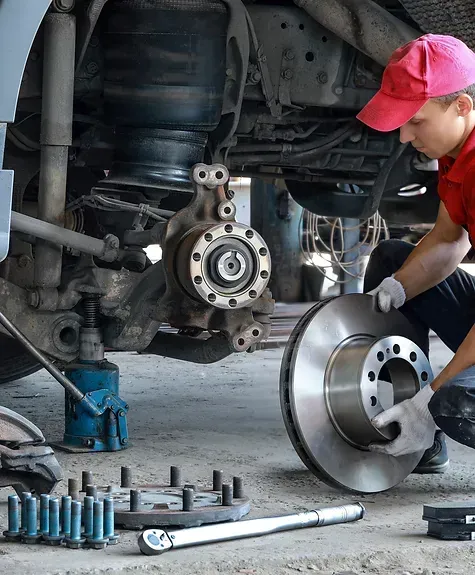
Brake Rotor Resurfacing or Replacement
Frequency: Every 50,000 to 70,000 miles, or if you feel vibrations when braking
Why It Matters: Rotors wear over time and develop grooves or warps. Replacing or resurfacing them ensures smooth braking and better vehicle control.

Brake Fluid Flush & Replacement
Frequency: Every 2–3 years, or 30,000 to 50,000 miles
Why It Matters: Brake fluid absorbs moisture and loses effectiveness over time. Replacing it maintains proper hydraulic pressure and ensures responsive braking.

Brake Caliper Inspection & Replacement
Frequency: No set interval; inspect during every brake service or if symptoms appear (e.g., uneven braking or sticking brakes)
Why It Matters: Calipers are responsible for pressing pads against the rotors. If they seize or leak, it can lead to uneven braking and increased stopping distance.

Brake Line & Hose Inspections
Frequency: At least once a year or during every brake service
Why It Matters: Brake lines and hoses carry fluid from your master cylinder to each wheel. Leaks or corrosion can lead to brake failure. Routine inspections catch problems early.

Dangers of Driving with Bad Brakes
Ignoring brake problems puts you and others at serious risk. Here’s what can happen:
Reduced Stopping Power: Your car might not stop in time during emergencies.
Increased Stopping Distance: Bad brakes increase the distance it takes to stop, especially in sudden stops.
Total Brake Failure: Minor issues can escalate into total system failure.
Costly Repairs: Continuing to drive on worn-out brakes can damage rotors, calipers, and more.
Noise & Vibration: Squeaking, grinding, or pulsing underfoot signals the need for immediate brake service.

After hours drop off directions
Open up Drop-off box
at our admin office
Complete & sign the form-
place keys in side the envelope
Place envelope with the
keys in the slot
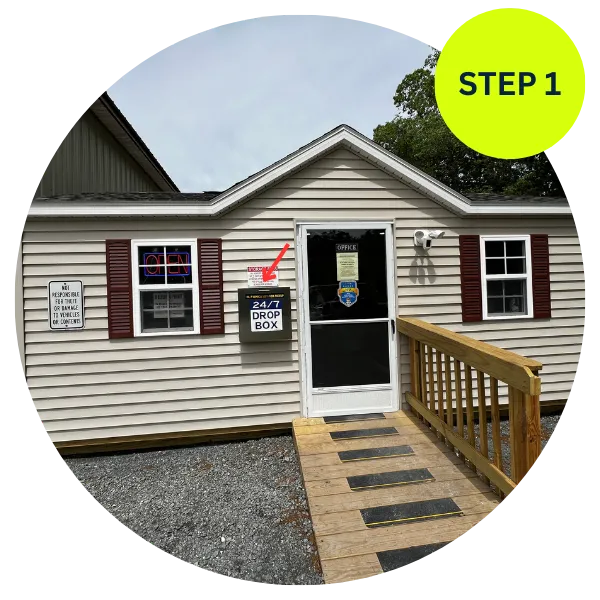
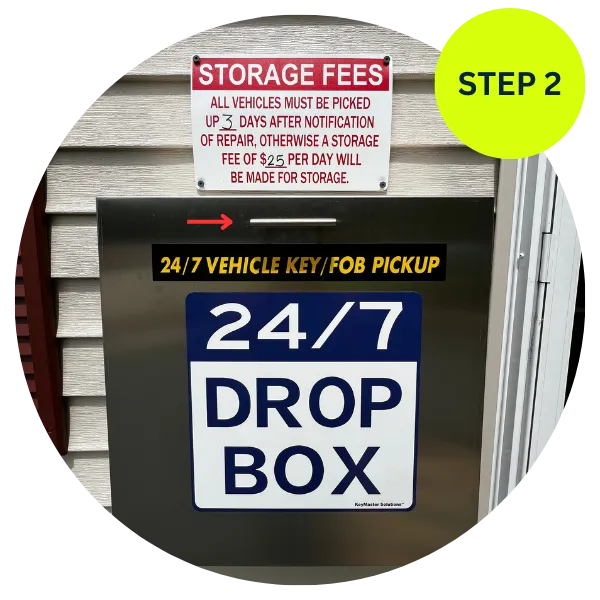
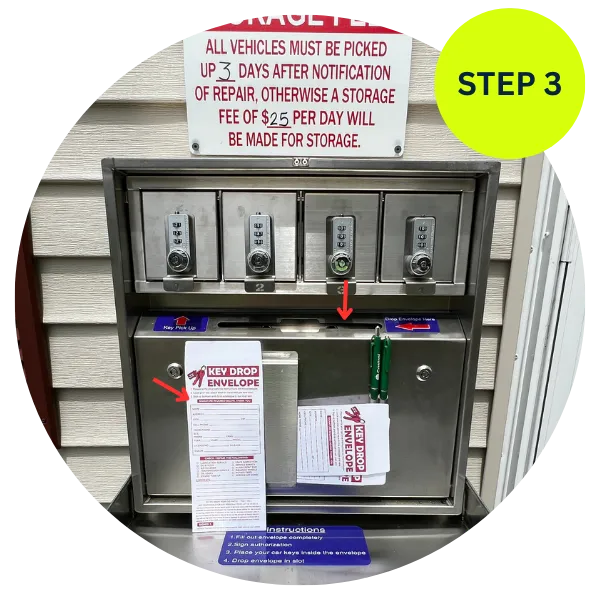
OUR SERVICES
Explore our comprehensive range of professional services today.
Oil Change
We check your brakes, air filters was well as set tire pressure. We check all fluids that are accessible and top off washer fluid with every oil change.
Brake Services
Inspection, repair, and replacement of brake pads, rotors, and fluid.
Need Estimate
Need Estimate for Specific Car Repairs
Routine Maintenance
Oil changes, tire rotations, fluid checks, and filter replacements. Top to Bottom vehicle inspection with our Multi Point Inspection process
Light Bulb Changes
Light Bulb Changes for signal lights, headlights or brakelights. Pricing based on type of light bulbs.
Engine Diagnostics and Repair
Identifying and fixing issues related to the engine, including tune-ups.
Transmission
Services
Transmission fluid changes, repair, and replacement.
Suspension and Steering
Repair and maintenance of shocks, struts, and steering components including air suspension.
Exhaust System Services
Repair and replacement of mufflers, catalytic converters, and exhaust pipes.
Electrical System Repairs
Battery replacement, alternator repair, and fixing electrical issues.
AC and Heating Services
Maintenance and repair of air conditioning and heating systems including 1234YF for 2016 & up vehicles.
Tire Services -COMING SOON!
Tire installation, balancing, alignment, and repair.
OUR PRICES
SERVICE
DESCRIPTION
PRICES
Starting at:
Diagnostic
Check Engine Light
$150
Oil Change
Synthetic Lube
$90
Tire Rotation
Tire Rotation
$30
Brakes
Brake Packages
$425
A/C
134A Recharge
$250
A/C
1234YF Recharge
$425
Inspection
Top To Bottom Vehicle Inspection
$240
Transmission
Transmission Service
$300
* There is a 4% Credit Card Fee Applied for Repairs over $500
WHY CHOOSE US
From routine maintenance to major repairs, we’ve got you covered.

Family-owned and operated since 2005

Certified, experienced mechanics

Honest pricing, reliable service
TESTIMONIALS
TESTIMONIALS

We Service all National and Foreign cars and trucks
Expert Automotive Repair and Maintenance Services
Accidents can happen unexpectedly. At Long Neck Auto, we strive to simplify and enhance your auto body repair experience. Upon arrival, you'll receive a precise computerized estimate, and our team of experts will ensure your vehicle looks as good as new.
We Make Car Repairs Fast & Easy
No need to wait, Pick Service and schedule your repairs in 3 easy steps
01
Book an Appointment
Call or schedule a Vehicle Estimate - Thorough diagnostics and transparent quotes
02
Repair & Service
Have your car repaired by certified professionals.
03
Pickup Your Vehicle
Backed by our Neighbor warranty on parts and labor
WHY CHOOSE US
From routine maintenance to major repairs, we’ve got you covered.




Trusted Local Shop
Family-owned and operated. Proudly serving Long Neck, Millsboro, and surrounding areas since 2005
Skilled Technicians
Certified, experienced mechanics handle all makes and models
Transparent Pricing
Honest pricing, fast & reliable service estimates, no upselling, no surprises.
Customer-Focused
We treat your vehicle with the care and precision it deserves. Reliable service for our neighbors!
Serving Long Neck, Millsboro, and Nearby Communities
Conveniently located in Long Neck, DE , Long Neck Auto is the go-to auto repair shop for residents of:
Pot-Nets
Baywood Greens
Oak Orchard
Millsboro
Rehoboth Beach
Lewes
Dagsboro
Harbeson DE
Georgetown DE
Ocean View DE
Bethany Beach DE
Selbyville DE
Fenwick Island DE
and beyond...
SHOP LOCATION
Call Us
If you have questions or comments about our services, give us a call.
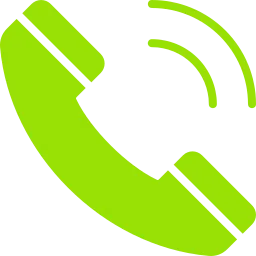
Phone
+1 (302) 297 - 8162

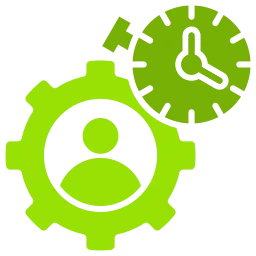
Office Hours
Mon - Fri :
Sat - Sun :Closed
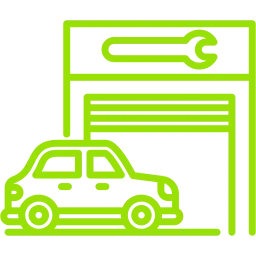
Office
32909 Long Neck Rd
Millsboro, DE 19966
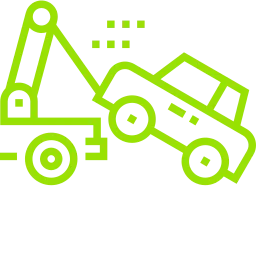
Towing Services
1 (302) 339-2692 - Barnes Towing

Innovation
Affordable solutions.

Integrity
Honesty and transparency.

Excellence
Top-notch services.
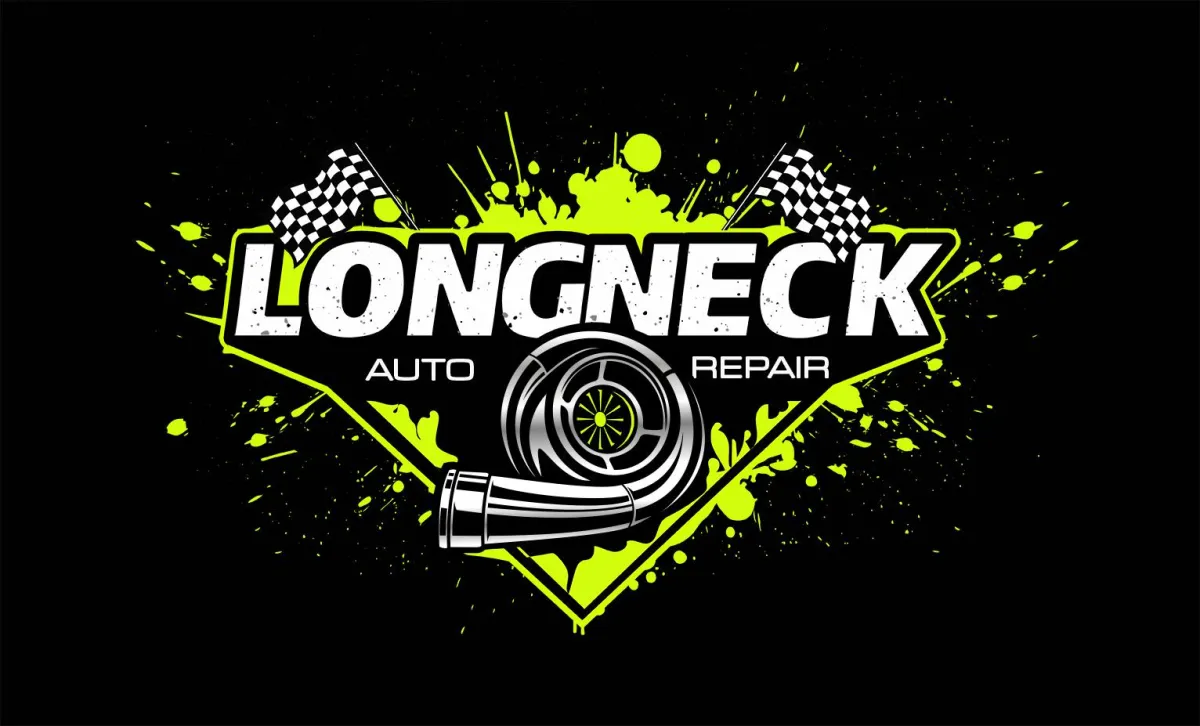
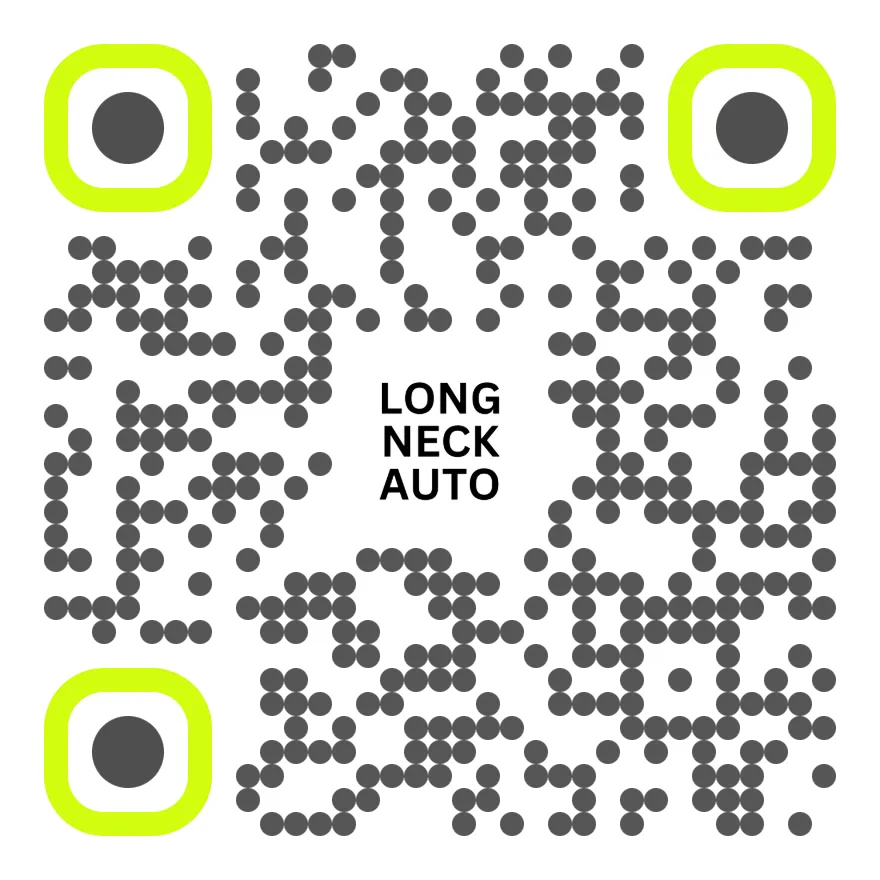
32909 Long Neck Rd
Millsboro, DE 19966
SHOP
LEGAL
OUR SERVICES
ABOUT
LOCATIONS WE SERVE
© Copyright 2026. Long Neck Auto. All Rights Reserved.
